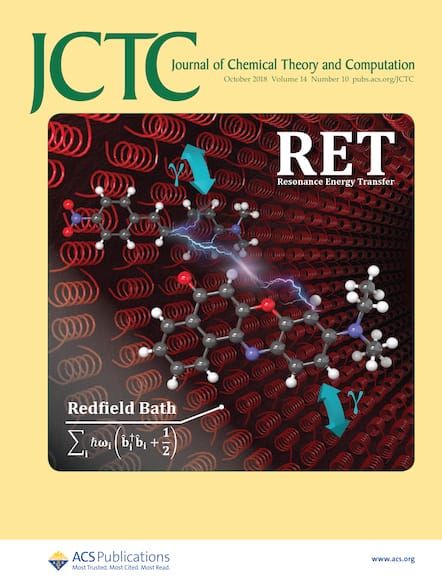利用自适应采样和机器学习增强对生物分子慢构象转变的采样。
IF 5.5
1区 化学
Q2 CHEMISTRY, PHYSICAL
引用次数: 0
摘要
生物分子模拟通常存在 "时间尺度问题",妨碍了对发生在较长时间尺度上的罕见事件的研究。增强采样技术旨在通过加速构象转变来缓解这一问题,但它们通常需要定义明确的集体变量(CV),这就带来了巨大的挑战。机器学习提供了很有前景的解决方案,但通常需要包含整个自由能面(FES)的丰富训练数据。在这项工作中,我们引入了一种自动迭代管道,旨在减少这些限制。我们的方案首先利用基于计数的无 CV 自适应采样方法生成一个富含罕见事件的数据集。利用库普曼加权时滞独立分量分析(KTICA)从该数据集中识别出慢速模式,随后利用即时概率增强采样(OPES)有效地探索 FES。在丙氨酸二肽(Ala2)和十丙氨酸(Ala10)这两个复杂度不断增加的模型系统上,我们展示了这一方法的有效性,并将其与常见的马尔可夫状态模型(MSM)方法进行了进一步比较,从而强调了它在各种生物分子模拟中的适用性。本文章由计算机程序翻译,如有差异,请以英文原文为准。
Enhanced Sampling of Biomolecular Slow Conformational Transitions Using Adaptive Sampling and Machine Learning.
Biomolecular simulations often suffer from the "time scale problem", hindering the study of rare events occurring over extended time scales. Enhanced sampling techniques aim to alleviate this issue by accelerating conformational transitions, yet they typically necessitate well-defined collective variables (CVs), posing a significant challenge. Machine learning offers promising solutions but typically requires rich training data encompassing the entire free energy surface (FES). In this work, we introduce an automated iterative pipeline designed to mitigate these limitations. Our protocol first utilizes a CV-free count-based adaptive sampling method to generate a data set rich in rare events. From this data set, slow modes are identified using Koopman-reweighted time-lagged independent component analysis (KTICA), which are subsequently leveraged by on-the-fly probability enhanced sampling (OPES) to efficiently explore the FES. The effectiveness of our pipeline is demonstrated and further compared with the common Markov State Model (MSM) approach on two model systems with increasing complexity: alanine dipeptide (Ala2) and deca-alanine (Ala10), underscoring its applicability across diverse biomolecular simulations.
求助全文
通过发布文献求助,成功后即可免费获取论文全文。
去求助
来源期刊

Journal of Chemical Theory and Computation
化学-物理:原子、分子和化学物理
CiteScore
9.90
自引率
16.40%
发文量
568
审稿时长
1 months
期刊介绍:
The Journal of Chemical Theory and Computation invites new and original contributions with the understanding that, if accepted, they will not be published elsewhere. Papers reporting new theories, methodology, and/or important applications in quantum electronic structure, molecular dynamics, and statistical mechanics are appropriate for submission to this Journal. Specific topics include advances in or applications of ab initio quantum mechanics, density functional theory, design and properties of new materials, surface science, Monte Carlo simulations, solvation models, QM/MM calculations, biomolecular structure prediction, and molecular dynamics in the broadest sense including gas-phase dynamics, ab initio dynamics, biomolecular dynamics, and protein folding. The Journal does not consider papers that are straightforward applications of known methods including DFT and molecular dynamics. The Journal favors submissions that include advances in theory or methodology with applications to compelling problems.
 求助内容:
求助内容: 应助结果提醒方式:
应助结果提醒方式:


